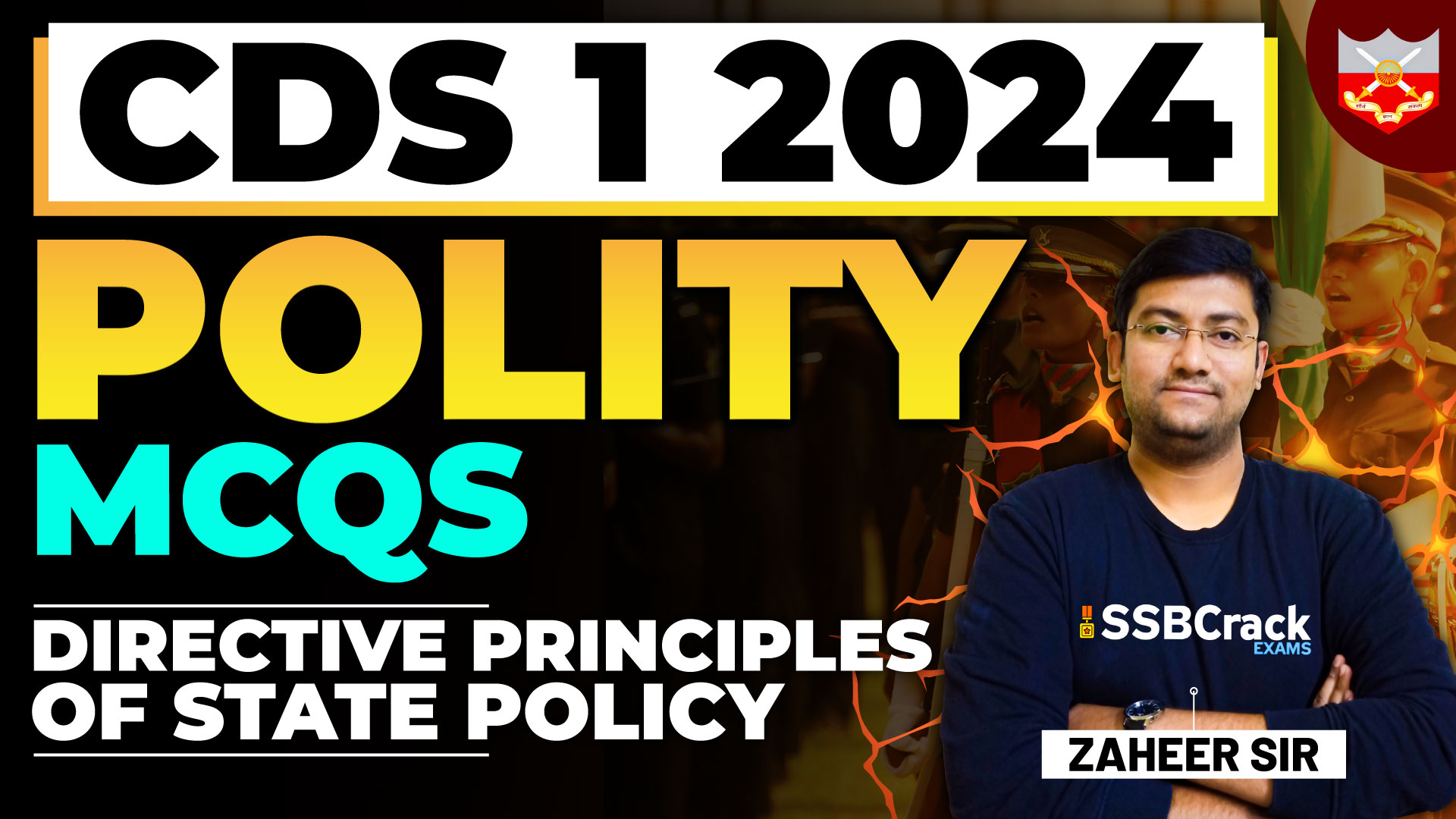The Combined Defence Services (CDS) examination stands as a gateway to a career of immense pride and responsibility in the armed forces of India. Aspiring candidates undergo rigorous preparation to excel in this examination, which encompasses a wide array of subjects, including polity – a pivotal component in ensuring a comprehensive understanding of the country’s governance structure.
One of the crucial aspects within the polity segment is the Directive Principles of State Policy (DPSP), enshrined in Part IV of the Indian Constitution. These principles serve as guidelines for the government while formulating policies and laws, aiming to establish an egalitarian society, uphold social justice, and promote the welfare of citizens.
In light of the upcoming CDS 1 2024 examination, the significance of MCQ (Multiple Choice Questions) solving classes focused on DPSP cannot be overstated. Here’s why such classes hold paramount importance:
1. Conceptual Clarity: MCQ solving classes provide a structured approach to understanding DPSP by breaking down complex concepts into manageable components. Through systematic learning, candidates gain a clear understanding of each directive principle, its objectives, and its significance in shaping governance.
2. Application-Oriented Learning: MCQs simulate the examination environment, challenging candidates to apply their knowledge to solve diverse problems and scenarios. By tackling a variety of questions, candidates develop the ability to analyze situations critically and apply DPSP effectively in different contexts.
3. Time Management: The CDS examination demands efficiency in time management, with a large volume of questions to be answered within a limited timeframe. MCQ solving classes not only enhance conceptual understanding but also help candidates refine their time management skills, enabling them to optimize their performance on the exam day.
4. Assessment and Feedback: Regular practice of MCQs allows candidates to gauge their progress and identify areas for improvement. Instructors provide valuable feedback, addressing misconceptions and offering strategic insights to enhance performance. This iterative process of learning and refinement is instrumental in achieving mastery over DPSP-related topics.
5. Confidence Building: Aspirants often face immense pressure while preparing for competitive examinations like CDS. MCQ solving classes serve as platforms for building confidence, instilling a sense of preparedness and self-assurance among candidates. With each successfully solved question, confidence levels soar, empowering candidates to approach the examination with poise and determination.
6. Competitive Edge: In a highly competitive landscape, where every mark counts, proficiency in DPSP can be the differentiating factor between success and failure. MCQ solving classes equip candidates with the requisite knowledge and skills to excel in the polity segment, thereby enhancing their overall competitiveness in the CDS 1 2024 examination.
In conclusion, MCQ solving classes focused on DPSP play a pivotal role in the preparation journey of CDS aspirants, offering them a structured and comprehensive approach to mastering this critical aspect of the Indian Constitution. By fostering conceptual clarity, promoting application-oriented learning, refining time management skills, providing valuable feedback, building confidence, and enhancing competitiveness, these classes pave the way for success in the forthcoming examination and, more importantly, prepare future leaders for the noble task of serving the nation through the armed forces.
DPSP MCQs
Which article of the Indian Constitution provides for the institution of Panchayati Raj?
A.Article 36
B.Article 39
C.Article 40
D.Article 48
Answer: C
Which of the following Directive Principles of State Policy come into the category of “liberal principles”?
1.The state shall endeavor to secure a uniform civil code throughout the territory of India.
2.The state shall protect every monument or place or object of artistic or historic interest.
3.The state shall endeavor to secure to all workers a living wage and conditions of work ensuring a decent standard of life.
4.Work Towards Organization Of Panchayats.
A.1, 2 and 3 C. 2, 3 and 4
B.1, 3 and 4 D. 1, 2, 3 and 4
Answer: A
Which one of the following Directive Principles was inserted by the Constitution (42nd Amendment) Act, 1976?
A.The State shall minimize inequalities in income
B.Equal justice and free legal aid
C.Promotion of co-operative societies
D.Provision for early childhood care
Answer: B
Protection of wildlife comes under which of the following in Constitution of India?
1.Fundamental duties
2.Directive Principles
3.Seventh Schedule
A.Only 1 & 2
B.Only 2 & 3
C.Only 1 & 3
D.1, 2 & 3
Answer: D
The Directive Principles of State Policy (DPSP) Was Inspired By Which Of The Following Constitution?
A.USSR
B.Switzerland
C.Japan
D.Ireland
Answer: D
For More MCQ’s On This Topic Refer To Below Video & Attached Pdf





















